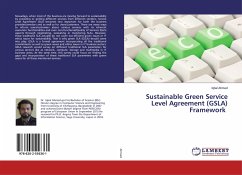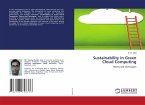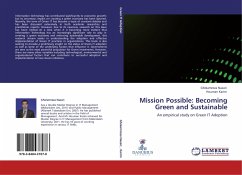Nowadays, when most of the business are moving forward to sustainability by providing or getting different services from different vendors, Service Level Agreement (SLA) becomes very important for both the business providers/vendors and as well as for users/customers. There are many ways to inform users/customers about various services with its inherent execution functionalities and even non-functional/Quality of Services (QoS) aspects through negotiating, evaluating or monitoring SLAs. However, these traditional SLA actually do not cover eco-efficient green issues or IT ethics issues for sustainability. That is why green SLA (GSLA) should come into play. GSLA is a formal agreement incorporating all the traditional commitments as well as green issues and ethics issues in IT business sectors. GSLA research would survey on different traditional SLA parameters for various services like as network, compute, storage and multimedia in IT business areas. At the same time, this survey could focus on finding the gaps and incorporation of these traditional SLA parameters with green issues for all these mentioned services.
Bitte wählen Sie Ihr Anliegen aus.
Rechnungen
Retourenschein anfordern
Bestellstatus
Storno








